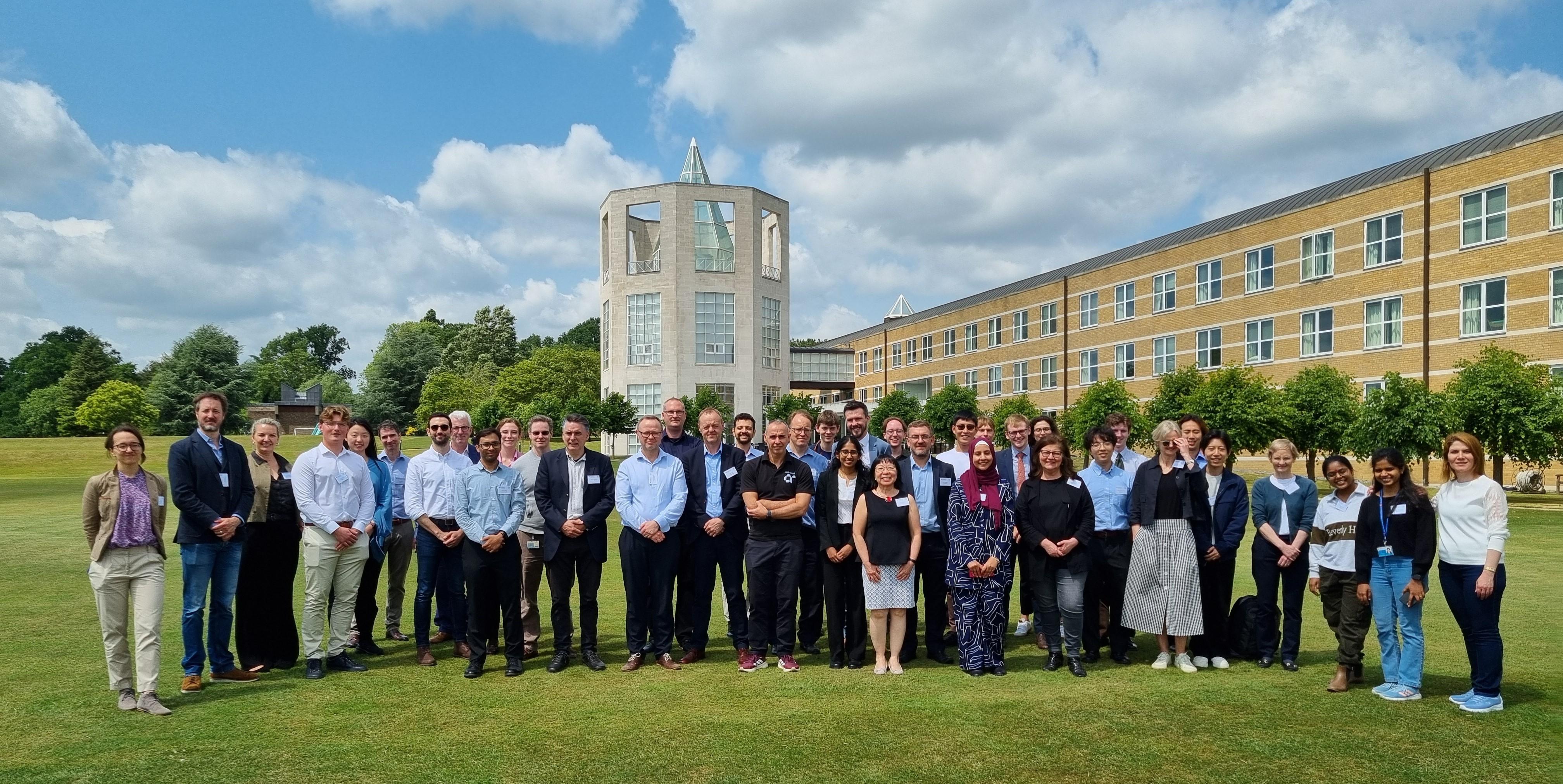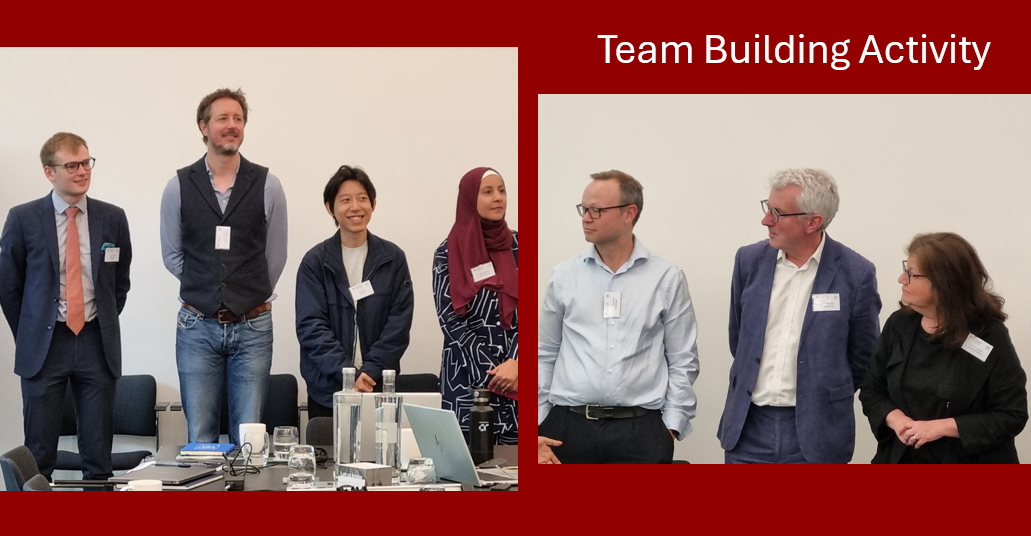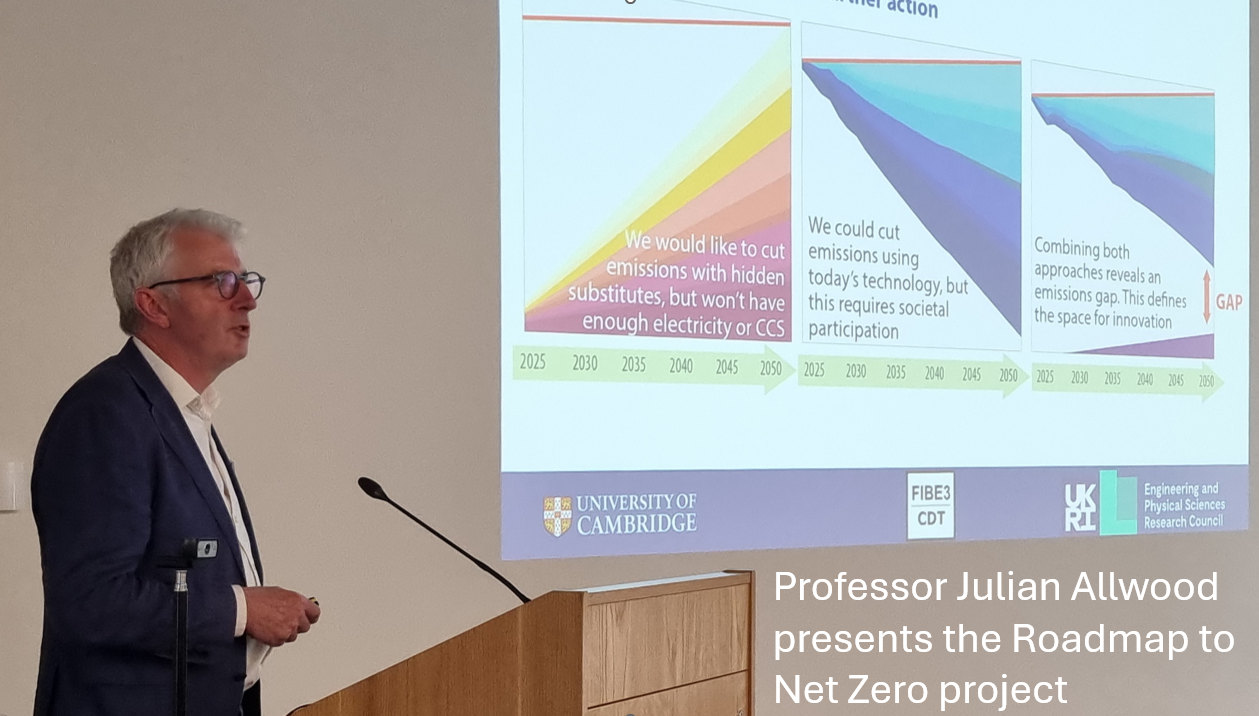
Submitted by Paula Block on Tue, 17/06/2025 - 12:11
Summer Industry Day 2025 brought together a fantastic mix of students, academics, and industry partners to exchange ideas, showcase MRes mini projects, and explore the exciting Roadmap initiatives.
The day started with a welcome and update from the FIBE3 Head and Director, Prof Abir Al-Tabbaa on the FIBE3 MRes programme. Abir also introduced the decarbonisation of transport infrastructure on the A382, a decision framework to a carbon-negative road asset and operational portfolio by 2050 in conjunction with the MGroup and Devon County Council. This was the basis of the FIBE3 Mini-Project with Cohort 1 split into a Planning Team and an Energy Team.
Using traffic data from the Devon Local Authority, the Energy Team modelled road energy demand to guide EV charger planning. They explored Smart Adaptive Lighting for efficient street lighting and promoted preventive road maintenance to boost efficiency. To power infrastructure, they considered renewable sources like solar, geothermal, piezoelectric, and kinetic energy. For immediate decarbonization, they recommended hydrogen and biofuels, offering a bridge toward a cleaner, more sustainable future.
The Planning Team assessed population trends, transport modes, and housing developments around the A382, identifying congestion hotspots on key commuter routes. They envisioned a future shaped by climate change—warmer summers, colder winters, habitat loss, and an increased flood risk. To build resilience, they proposed an enhanced water and flood management, including carbon-sequestering native trees and cool, permeable asphalt to reduce runoff. For achieving Net Zero, they recommended a smart traffic management system with ATMs, sensors, and analytics to optimize infrastructure investment across roads, cycleways, and public transport.
Guest speaker Jamie King from WSP delivered a thought-provoking talk on navigating future change—highlighting trends like decarbonisation, digital transformation, and the sharing economy. He championed systems thinking and stressed the importance of a people-centred, locally relevant approaches to drive meaningful and sustainable change.
The roadmap session was led by Professor Allwood and outlined the FIBE3 Roadmap. The purpose of this collaborative paper is to provide a comprehensive framework for achieving net-zero emissions in the UK by 2050 by splitting all emitting activities into 9 categories. The session began with an explanation by Prof. Allwood of how the modelling had been carried out and the importance of the context in which it is presented.
The students then presented each of their sectors, outlining both a techno-optimistic invisible substitution and a participatory change option. This highlighted the resource constraints and high costs associated with technologies such as hydrogen and CCS, making them challenging to scale rapidly. This was contrasted with approaches leveraging existing technologies used differently to achieve climate mitigation within the set resource limits. These sections highlighted the importance of considering net-zero pathways as a holistic topic and not within the industry silos.
Opening the discussion with the results of the modelling, specifically the gaps in emissions reduction and innovation opportunities, led to a hugely productive session, with the industry partners able to share their thoughts on the project and the route we as a consortium could take to use this to enact wider change. This was particularly helpful given the roadmap’s interactive format. We continue to invite feedback from readers to refine future iterations and ensure the roadmap remains user-led and impactful. You can access the full report here: https://doi.org/10.17863/CAM.118457
A huge thank you to everyone who joined us and made the day so impactful. The energy in the room was contagious, and the conversations—especially around the Unlocking Net Zero Roadmap 2025 —were both inspiring and innovative. Here’s to continued collaboration and innovation on the journey to a sustainable future!



